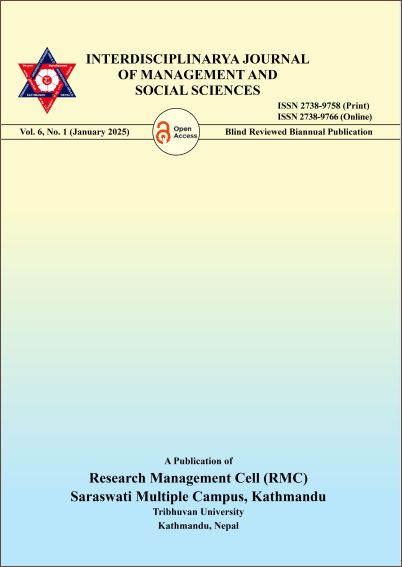Unlocking Employee Potential: Effectiveness of Incentive Practices in Nepalese Banks through Expectancy Theory
DOI:
https://doi.org/10.3126/ijmss.v6i1.75400Keywords:
Employee performance, banking sector, expectancy theory, financial incentives, non-financial rewards, employee motivation, organizational behaviorAbstract
This study explores how incentives shape employee performance in Nepal’s banking sector. To better understand this, 323 bank employees shared their experiences and insights through structured questionnaires. The collected data were analyzed using statistical methods like multiple regression and correlation analyses, focusing on three key types of incentives: pay, promotion, and moral recognition. The results paint a clear picture: pay stands out as the most influential factor in boosting employee performance, closely followed by moral incentives like appreciation and recognition. Surprisingly, promotion opportunities don’t seem to make much of a difference. This indicates that employees in Nepal’s banks place greater value on tangible rewards and being acknowledged for their efforts rather than on advancement opportunities. By offering better pay packages and making employees feel valued through moral incentives, banks can create a more motivated and productive workforce. These findings align with the principles of Expectancy Theory, which emphasize that employees are most motivated when they see rewards as both clear and desirable. This study provides practical advice for Nepal’s banking sector: prioritize fair compensation and genuine recognition to improve employee satisfaction and drive organizational success.
Downloads
Downloads
Published
How to Cite
Issue
Section
License

This work is licensed under a Creative Commons Attribution-NonCommercial 4.0 International License.

